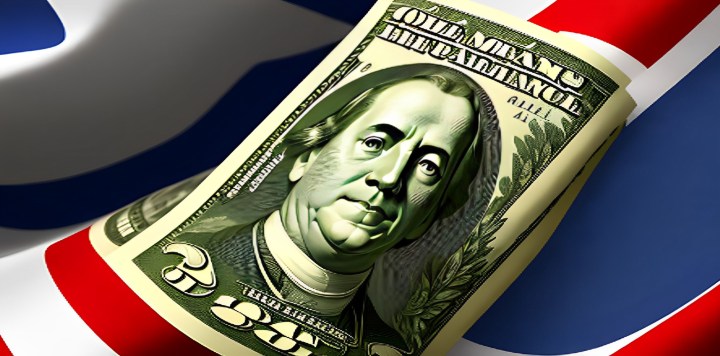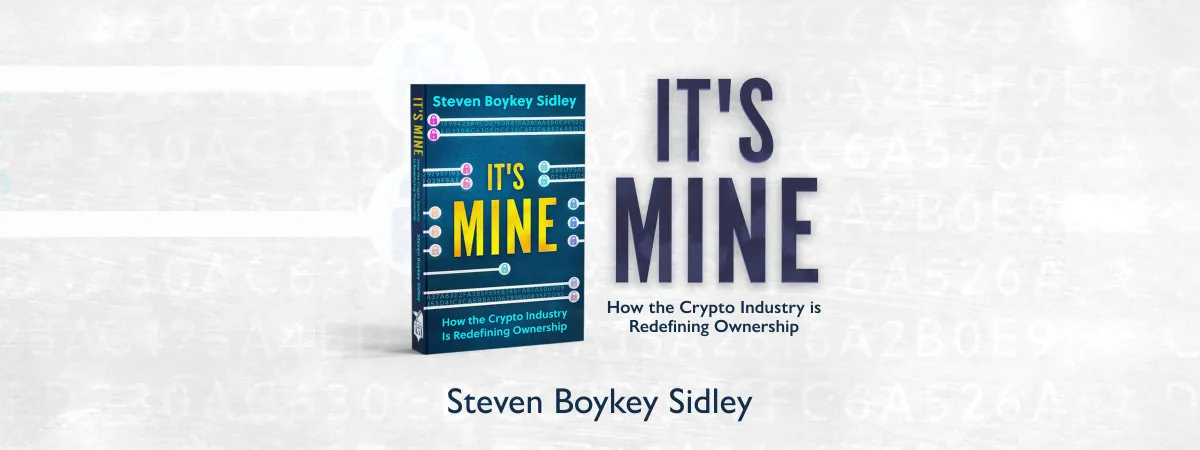GUEST ESSAY
The end of dollar dominance? Nah. No chance

Dollar dominance might not be popular and a small percentage of international trade deals may choose to try another currency, but when push comes to shove the dollar is where the safety still lies.
In certain quarters there seems to be a great gleeful trembling of anticipation about the imminent unseating of the dollar from its throne as king of the world’s reserve currency. True, some interesting cracks have appeared. Talks of a multipolar or at least bipolar monetary global world abound. Some recent trade deals have been done in Chinese yuan, with a few surprising Western participants, like France. BRICS participants hyperventilate with excitement about a new world order, in which they can all escape the shadow of dollarisation.
Don’t hold your breath. It’s not going to happen anytime soon.
We first have to head back to July 1944 when 730 delegates from all 44 Allied nations gathered at the Mount Washington Hotel in Bretton Woods, New Hampshire, US. They spent three weeks discussing how to rearrange the financial and monetary world in the wake of the destruction of the Axis powers. A lot was at stake here. Germany, Italy and Japan were destroyed, and Europe was bankrupt and exhausted, even in the glow of victory. And every other place else in the world was, at best, irrelevant financially, including China, an impoverished and largely illiterate backwater, notwithstanding its huge population.
The only country that had emerged unscathed and wealthy was the US. Really wealthy. The prime provider of finance and supplies to its war allies, it had lots and lots of money owing to it from the Allies. Loans are an asset on the balance sheet; they give negotiating power, as anyone who has argued with a bank about a missed mortgage payment can attest.
So, after some to-ing and fro-ing by economists and others, there was really only one choice for a stable global currency for international trade, and it was the dollar, at least partially tied to the fact that the US had 70% of the world’s gold bullion which was (in those days), the dollar’s guarantee.
And so, on 27 December 1945, 19 of the participating countries signed an agreement that described rules, institutions and procedures to regulate the international monetary system, and which established the International Monetary Fund and the forerunner to the World Bank, then called the International Bank for Reconstruction and Development. The Soviet Union did not sign. It got grumpy about the US ascending the throne but had little to offer as an alternative.
But there was a softer matter that one imagines intruded into the conversation, either explicitly or not. It was that the US was, at least in comparison with most of the non-Western world, a true democracy. Peaceful handovers of power from election to election and party to party were bedrock principles. A fair ballot box (ignoring for the sake of this discussion the exclusion of some marginalised groups in 1945) was also a deeply protected virtue.
So here was the calculus: The US is ridiculously rich. It has a real democracy. It has capable institutions and the rule of law. It has separation of powers. It has zealously protected property rights. It is geographically protected from invasion.
The US is in rude health and remains by far the deepest well of financial and economic stability in the world.
This meant the likelihood of wild currency volatility (or state manipulation of currency value) was less likely than for almost all other countries. This meant that the US could be trusted with money and payment settlement. Anyone’s. Everyone’s.
And everyone was happy with the arrangement which, even after gold was untethered from the dollar, has kept the financial system on solid ground for 70 years. And it’s made the US even richer in the process as it deployed its financial supremacy to its advantage in both loud and soft ways, albeit at the cost of hollowing out its industrial capacity through comparatively high labour costs and the siren song of globalisation.
Hypocrisies and malfeasances
“What!?” I hear you cry, pointing to any number of hypocrisies and malfeasances committed in the US’s name. All true. But the facts remained the same until now (more on this later). It has been a remarkably safe financial harbour since that agreement was signed.
So now we jump to the present, 2023 and consider whether circumstances have changed. Let’s start with the US’s economic strengths. A recent Economist article summarised the big items.
“In 1990 America accounted for a quarter of the world’s output, at market exchange rates. Thirty years on, that share is almost unchanged, even as China has gained economic clout. America’s dominance of the rich world is startling. Today it accounts for 58% of the G7’s GDP, compared with 40% in 1990. Adjusted for purchasing power, only those in über-rich petrostates and financial hubs enjoy a higher income per person. Average incomes have grown much faster than in western Europe or Japan. Also adjusted for purchasing power, they exceed $50,000 in Mississippi, America’s poorest state — higher than in France.”
What about innovation and intellectual property?
“American firms own more than a fifth of patents registered abroad, more than China and Germany put together. All of the five biggest corporate sources of research and development (R&D) are American; in the past year they have spent $200bn. Consumers everywhere have benefited from their innovations in everything from the laptop and the iPhone to artificial-intelligence chatbots. Investors who put $100 into the S&P 500 in 1990 would have more than $2,000 today, four times what they would have earned had they invested elsewhere in the rich world.”
Read more in Daily Maverick: Silicon Valley: The biggest bank run in history — and a tale of two unlikely bedfellows
I could go on here (and of course, these stats are not the whole story), but the US is in rude health and remains by far the deepest well of financial and economic stability in the world. And it stands apart from everyone else with its commitment to the free flow of capital across borders (in contrast to China, which has draconian capital controls) and the planet’s mightiest army.
Which is not to say that there is not another narrative.
A number of matters raise their ugly heads. The first of these is that more than $300-billion of Russian sovereign state assets (as opposed to oligarchs’ yachts and mansions) have been frozen by a group of Western allies called the Russian Elites, Proxies and Oligarchs Task Force.
Now there are moves to seize those funds permanently to pay for a later rebuilding of Ukraine. The US’s role in this is different from its allies. The US is supposed to be a safe monetary haven for the planet. If it can arbitrarily seize a foreign country’s central bank funds safely stored on US shores, how can it ever be trusted again? By anyone?
And then there is the shitshow of the US banking system, now shakily trying to recover from a Fed that inflated rates so fast that they blew some banks up (I wrote about this here).
Oh, and the inescapable feeling that the entire country is ripping itself apart at the seams, its citizens on either side of the political divide no longer breaking bread at the same dinner table, and muttering dark prophecies about the end of the constitutional democracy.
And the rise of China, now not only a leader in many areas of commerce (such as the industrial sectors and even parts of AI, like computer vision), but also muscular and arrogant and catching up on a number of economic metrics, like being the world’s largest trading partner to most countries. To say nothing of India, also ascending, especially in tech and population (soon to overtake China).
All of which feeds this narrative: Perhaps it is time for a new king, financially speaking.
But here I must ask you: Where are you going to feel safer with your money, your credit, your loan, your insurance, your pension? In the hands of a dictator like Xi Jinping who has shut down the internet and instituted draconian controls on capital leaving the country? Or Vladimir Putin, who will invade and try to lay waste to a sovereign neighbour in a fit of pique and the bitterness of a lost Cold War? Or perhaps the casino of an emerging market currency whose value can plummet without a life jacket on the back of economic mismanagement or corruption, like South Africa or Turkey? Or Europe with its internal bickering and shaky alliances? Or Japan, which has almost no liquidity and no military? Or even gold with its divisibility and portability problems?
Or in the somewhat warmer cocoon of the richest democracy and deepest economy in the world?
Dollar dominance might not be popular and a small percentage of international trade deals may choose to try another currency, but when push comes to shove the dollar is where the safety still lies. The dollar might not be as pretty as it once was, but it’s still the only one on the dance card.
Brazilian President Lula recently asked: “Why should every country have to be tied to the US dollar for trade? Why can’t we trade in our own currency?” while his country is currently suffering double-digit inflation. Clearly, no one had explained it to him. DM



















Concur with Paul Krugman 😀
I agree with the overall understanding of the dollar’s place and power in global financial system. I, however, am not surprised by your perpetuation of Washington’s “evil empires” and “enemies of freedom”… And, no: I did not just crawl out of the woodwork, nor do I support dictators and nutters who make war.
Typical comment from Mr Lagardien, who can’t see the wood from the trees and exposes his inherent anti-Western stance, however gilded. It is not rocket science to easily see who the evil empires and enemies of freedom of this world really are, and what a new (sinister) order they are trying to impose on the world. It seems he is comfortable to be in the same company as Putin, Xi Jing Ping, the new ruler of Saudi Arabia, the hideous mullahs of Iran etc. Perhaps he should take a moment to reflect that he could not continue with his work as a free/independent journalist/writer etc. under these truly awful and deranged regimes, unless of course he towed the party line.